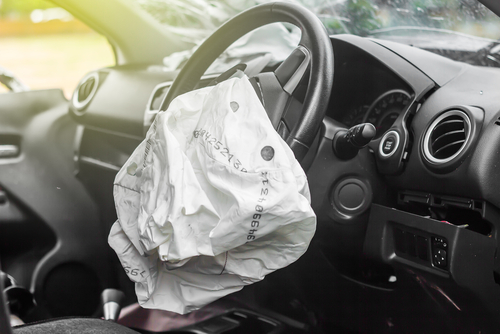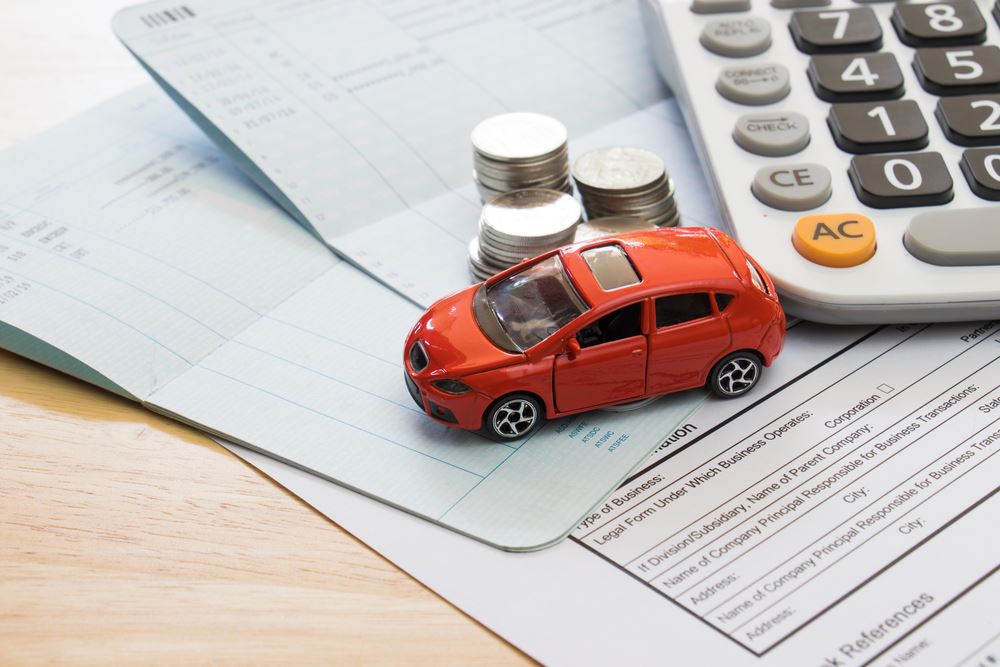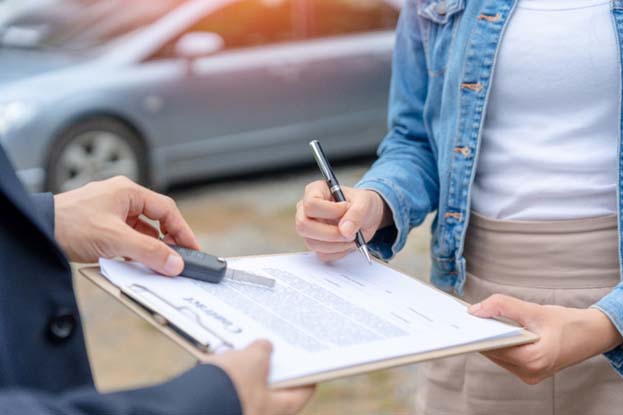Semi-trucks, 18-wheelers, and other commercial vehicles (CMVs) are imposing forces on the road. Because of their size and weight as well as the material they may be hauling, they can be intimidating to other drivers on the road. While being in an accident is a traumatic experience, an accident can be even more catastrophic and life-changing if the other vehicle is much larger than yours.
According to data from the National Highway Traffic Safety Administration (NHTSA), in 2019, crashes involving large trucks resulted in 5,005 fatalities. 71% of those killed in accidents involving large trucks were drivers or passengers in other vehicles and 11% of those killed were nonoccupants (i.e. pedestrians, bicyclists, etc.) Whether caused by driver fatigue, drivers being impaired (by drugs or alcohol), or reckless driving habits, commercial vehicle accidents can also result in severe injuries for those involved, including (but not limited to):
- Head and brain injuries
- Broken bones
- Lacerations and cuts
- Burns
- Spinal damage
- Back and neck injuries
- Disfigurement
- Internal injuries
10 steps to take after a truck or commercial vehicle accident
If you are involved in a collision with a commercial vehicle, you must take the proper steps to ensure that you get the medical attention you need as well as be fully compensated for your out-of-pocket expenses as well as non-financial damages. Here are ten steps to take after being involved in a CMV incident.
- Get to safety (if possible). No matter how severe the accident is, you should stop your vehicle and if possible, move to safety. Remaining in the middle of the road or on the pathway of other vehicles can be dangerous. If you cannot move your vehicle, consider placing reflective triangles or flares on the road to warn other vehicles. However, if you are gravely injured, you should not move before help arrives as you may aggravate or worsen your wounds.
- Call 911 if you or your passengers are injured. No matter how major or minor your injuries may seem, you need to be seen by a doctor. Once your adrenaline and shock wear off, you may begin to feel more pain and notice other injuries.
- Check the accident scene for other injured persons. Even if you and your passengers appear to be fine, you should look for others who might be hurt to determine whether you should call 911.
- Check your vehicle and the commercial vehicle for hazards. Sometimes, your car may be leaking or catch fire, and in other cases, the CMV may have been hauling hazardous materials. If there is an added level of danger because of fire or hazardous materials, you should know so that you can inform the 911 operator or take steps to deal with the emergency.
- Call the police (even if you were not injured). In Virginia, drivers are required to report accidents that involve fatalities, injuries, or property damage (see Virginia Code § 46.2-894). The police report can also include helpful information that can be submitted as evidence, such as witness statements, the officer’s opinion concerning fault, and a sketch of the scene.
- Take photos and notes (if possible). Photographs of the scene, the vehicles involved in the collision, and your injuries (before and after treatment) can be used as evidence later. If weather or road conditions played a part in causing the crash, they can also be very valuable as these conditions can change.
- Exchange information with the CMV driver. You should obtain the other driver’s name, contact information, insurer, address, truck carrier company name, and truck number. This information should also be included on the police report but it is always best to obtain this information yourself if possible.
- Obtain any witness contact information. You should also ask for the contact information of witnesses and the emergency service workers as well as take note of everything that happens as these details can be important. While their information may be in the police report, you may benefit from having more notes about what they saw happen.
- Get medical treatment. Being looked over by EMTs or medical staff can help ensure you get the medical care and treatment you need. Your doctor can also advise you of the potential symptoms you may develop later that can signal a more serious injury (like a traumatic brain injury or internal issues). You should adhere to your doctor’s treatment plan and be sure to use your health insurance for your medical expenses.
- Talk to a commercial vehicle accident attorney. Before you speak with the insurance company, contact our experienced CMV accident attorneys. This step is one of the most important parts of the post-accident procedures. While many people consider forgoing hiring an attorney, that can be a huge mistake and leave you with thousands of dollars in medical expenses coming out of your pocket. Our attorneys have handled thousands of cases successfully, and we can act as advocates for you by working to ensure you are fully and fairly compensated. Oftentimes, insurance companies offer CMV accident victims lowball settlement offers. However, once you retain our team, we can fight for your right to fair compensation and be the point of contact for both your insurer and the other party’s insurer.
What should you avoid doing after an accident
If you have been involved in a CMV accident, you should avoid these common mistakes to protect yourself and your legal rights.
- Do not flee the scene. Even if you believe you are partially at fault, do not leave the scene of the accident. Depending on the amount of damage to property at the scene, you can be charged with a Class 5 felony (if the accident caused injury, death, or over $1,000 of property damage) or a Class 1 misdemeanor (if the accident caused no more than $1,000 of property damage) after leaving the scene of the accident.
- Do not move if you are severely injured. As we mentioned, the adrenaline and shock may interfere with your ability to feel how severe your injuries are or that you are even injured.
- Do not take off protective gear. If you are a motorcyclist or bicyclist involved in a CMV incident, your protective gear may be preventing you from worsening an injury. Let EMTs or medical professionals remove your gear.
- Do not avoid being seen by a doctor or healthcare professional. Sometimes, you may look and feel unharmed but have internal injuries or head trauma. Symptoms of certain traumatic brain injuries can develop a few days after the accident. However, a doctor can conduct an exam and advise on what to look for, which can be lifesaving.
- Do not lose your temper. We understand how scary being in a CMV accident is. Because of worry for yourself, your passengers, and others on the road as well as the accident itself, your emotions are likely running high even if you are injured. However, you shouldn’t let your emotions get the best of you by yelling at the other driver. If you feel like you might lay blame or yell, take some deep breaths and focus on something or someone else. Are others involved in the crash okay? Did you take pictures and notes? Did you get the witness and driver information?
- Do not try to take on everything yourself. Some people do not obtain reliable legal counsel, which can be a mistake and leave you with thousands of dollars in medical bills. After an accident, you should focus on your mental, emotional, and physical healing; let our CMV accident attorneys handle the case legalities.
Injured by a truck or commercial vehicle? Contact our firm today.
At Huffman & Huffman Brothers-in-Law, our attorneys have over 150 years of collective experience, and we are dedicated to advocating for our client’s rights to fair compensation after suffering injuries in an accident. If you or a loved one have been injured in an accident with a truck or another commercial vehicle, our qualified attorneys can help you:
- Calculate the economic and non-economic damages you are owed
- Understand your legal rights and options
- Collect evidence and investigate the circumstances of the accident
- Establish liability
- Connect with helpful experts, such as accident reconstructionists, neurologists, psychologists, and trucking industry professionals, who can testify
- Negotiate or litigate a fair settlement offer
- Navigate the entire legal process
- Alleviate some stress by handling the case legalities while you focus on healing
Schedule a case consultation with the team at Huffman & Huffman Brothers-in-Law today by calling (757) 599-6050 or reaching out online. We work on a contingency fee basis, which means you won’t pay until we win your case.
 Text Us
Text Us  Call Us
Call Us 







